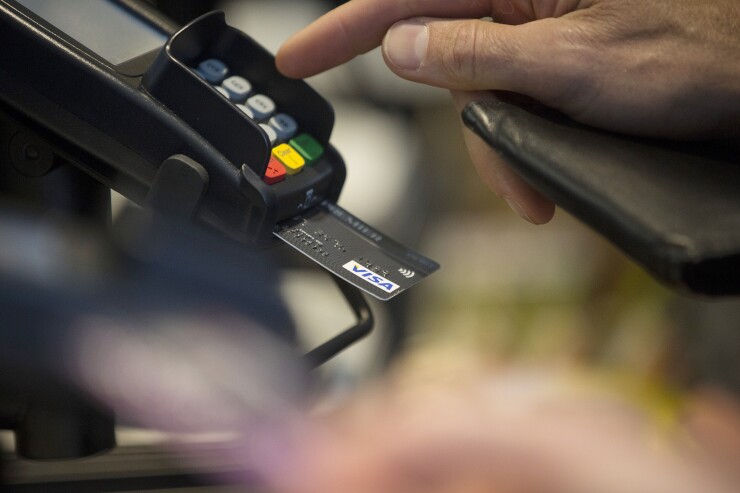The
Verifone's attractiveness to Francisco is partly a testament to CEO Paul Galant's turnaround.

The mobile point of sale market grew by preying on these weaknesses. Square's pitch was less about technology and more about ease of access — small merchants that didn't want to contend with Verifone's customer service issues could instead pick up a card reader at any convenience store for just $10. Verifone tried to match this with products like
Verifone's turnaround was gradual, but in the past two years it has sharpened its move from payment terminal-based company to a software provider. The strategy is showing some effect, despite headwinds from the EMV migration, as CEO Paul Galant noted in the company's most recent earnings report on
The deal with Francisco Partners will make Verifone a privately held company, and will also allow it to accelerate its strategy in a dynamic merchant acquiring industry that looks much different than it did as recently as five years ago, with billions of dollars in acquisitions and investments birthing a tech revolution. The deal includes Verifone's debt, and is expected to close in the third quarter. Verifone's board has approved the deal, which includes a "go shop" period through May 24, meaning it's possible another company could come in with a better offer.
Verifone's traditional rival, Ingenico, has also bulked up through the M&A market, acquiring the Swedish digital payment company
But Ingenico and Square are only two examples of the substantial pressure Verifone faces.
And Stripe's not alone.
Verifone and Francisco did not return requests for comment on Monday night.
For Verifone's part, it's kept up by pushing the adoption of Verifone Connect, its new cloud-based omnichannel digital services platform, connecting its 30-million-device footprint through Verifone's gateway and expanding use of its Carbon digital payments system.
By coming under Francisco's investment umbrella, Verifone will have plenty of potential partners, some of which Verifone is already working with.
These companies cover multi-channel support for EMV, mobile payments, omnichannel shopping, quick service payments systems, gateway, ISO sales and authentication/security. Verifone has been building out its business in all of these areas, so gaining a roster of easy-to-integrate collaborators will place Verifone and Francisco's other holdings in front of merchants in dozens of countries, in nearly every category and almost all sizes.
The San Francisco-based Francisco Partners formed in 1999, has raised more than $14 billion in capital and has invested in more than 200 technology companies. Other investors in the Verifone deal include British Columbia Investment Management Corp., a Canadian institutional investor.
Francisco has invested in many health care companies, and it has several fintech companies in its
Francisco's holdings also include Paysafe, a Houston-based company that provides connections for mobile wallet, online payments and other digitally focused merchant services. Paysafe is already collaborating with Verifone to sell Verifone's Carbon and Engage terminals through Verifone Connect, powering business, marketing and loyalty programs.
Another Francisco holding,
Other collaborations with Francisco portfolio companies could come from
Each of these companies touch on some or all of Verifone's diversification needs.
Verifone is still grappling with the
In an earlier





